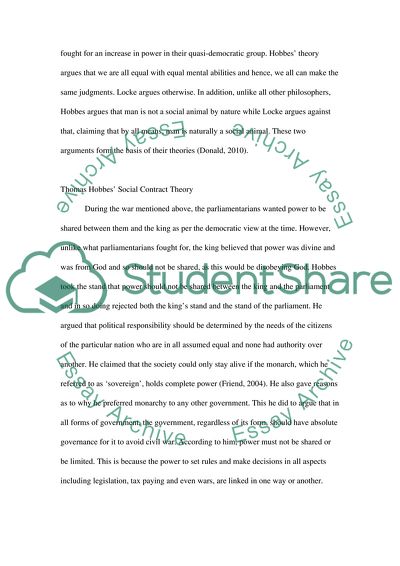Cite this document
(Comparison between Hobbes and Lockes Social Contract Theories Research Paper, n.d.)
Comparison between Hobbes and Lockes Social Contract Theories Research Paper. Retrieved from https://studentshare.org/social-science/1739868-compare-hobbes-theory-of-the-social-contract-with-lockes-theory
Comparison between Hobbes and Lockes Social Contract Theories Research Paper. Retrieved from https://studentshare.org/social-science/1739868-compare-hobbes-theory-of-the-social-contract-with-lockes-theory
(Comparison Between Hobbes and Lockes Social Contract Theories Research Paper)
Comparison Between Hobbes and Lockes Social Contract Theories Research Paper. https://studentshare.org/social-science/1739868-compare-hobbes-theory-of-the-social-contract-with-lockes-theory.
Comparison Between Hobbes and Lockes Social Contract Theories Research Paper. https://studentshare.org/social-science/1739868-compare-hobbes-theory-of-the-social-contract-with-lockes-theory.
“Comparison Between Hobbes and Lockes Social Contract Theories Research Paper”, n.d. https://studentshare.org/social-science/1739868-compare-hobbes-theory-of-the-social-contract-with-lockes-theory.


